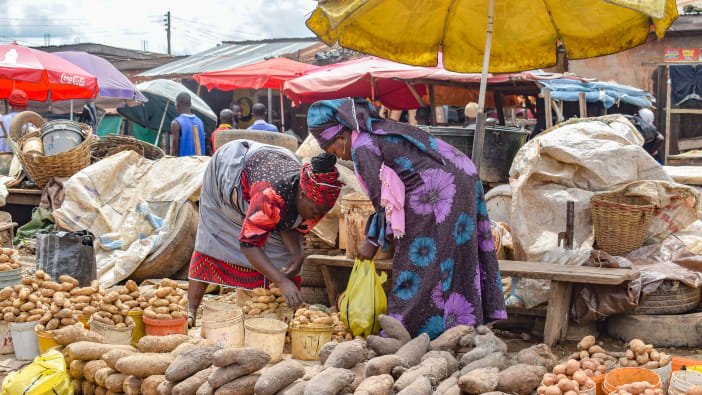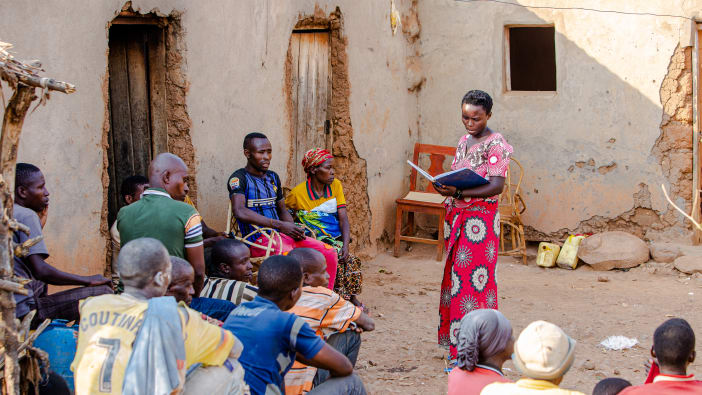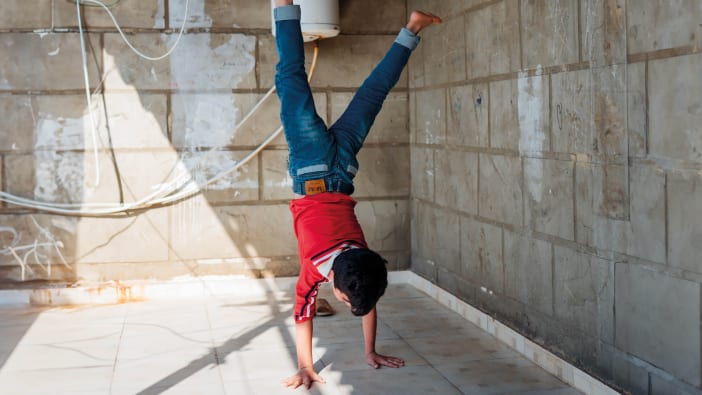Initially, Here is Life supported local churches to carry out a survey to identify common issues leading to the ongoing conflict between the host and refugee communities. The Bidibidi Refugee Settlement is divided into five zones. The survey was done in Zone Four across four different refugee villages, as well as one host community village surrounding Zone Four.
A number of issues were identified, particularly around the use of land and natural resources, unequal access to services and cultural differences between the host and refugee communities. For example, the refugee communities found their crops were being destroyed by the host community’s free roaming livestock, while the host community identified increased deforestation and environmental degradation due to the rise in demand for firewood and timber from the refugee settlements. Both communities also identified the misuse of drugs and increase of crimes, including theft and rape cases, as key issues to address.
After this survey, ten community leaders were identified from each village and invited by the local churches to attend dialogue meetings as an opportunity to discuss the challenges and seek solutions. The leaders also invited the Refugee Welfare Councils (RWC) – a local leadership structure for the refugee communities. This is composed of elected refugee leaders which act as a contact point between the refugee community and refugee programmes and organisations at a local level. The RWC leaders play a key role in implementing physical protection and access to justice for refugees in their communities. Alongside the community leaders and RWC, the local council chairperson, elders, women and youth leaders, together with religious leaders from both Christian and Muslim denominations, also attended the meeting.
After the dialogue meetings, the leaders from both host and refugee communities were able to come up with a practical action plan to address the identified issues. This included, amongst other things, agreeing that when a refugee is in need of resources like timber or firewood, they should seek permission from the owner and/or host communities. They also agreed to implement a sub county bylaw about roaming domestic animals and the host and refugee communities were encouraged to plant trees to combat the issue of deforestation and lack of timber.
The successful dialogues were broadcast live on Voice of Life, a radio station owned by Here is Life, which is widely listened to in the region and is popular with both host and refugee communities. Since the meeting, the level of cooperation between the refugees and the host community has increased. One refugee church leader shared the difference the peacebuilding and advocacy training has made:
‘The dialogue was useful in helping both the host communities and refugees to appreciate more the resources that God put for them in the settlement area and that they needed to share them and use them reasonably. Stealing mangoes and firewood was a big cause of conflict but after agreeing during the dialogue that children could humbly ask for those mangoes and firewood and not just take without permission, the quarrels with host communities have greatly reduced.’







